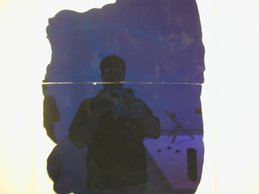One of the dangers of being a chaplain is trivializing a person's pain or experience. It is relatively easy to do and if you do it too often the patient will shut up and not talk anymore or ask you to leave the room. And so you might loose the chance to support them.
How do you trivialize their pain? You do this by first listening to their experience and then telling them that..."Oh yes I have been through that" or "I know of someone who went through the same thing and this is how they got through it". This at first might seem good as your are just trying to show the patient that you are empathizing with them. But as they try to tell their story/pain and you try and interject with something of your own they begin to think that this person is not listening to me. And then they stop talking and let you talk which is the exact opposite of the role of the chaplain. In the first few visits the PT does not want to be told how to fix their situation or how you or a friend went through the same problem. They want to be able to tell their story/pain and they just want a person to listen. And that is hard as we, humans, seem to be hardwired to try and solve problems or talk about what we have been through instead of just listening.
This applies to every day life as well. How often do we find a friend in need or in pain and when they try to tell their story we say, "Oh it's not that bad, I had the same thing happen to me/friend/co-worker etc and this is what happened". Or "Wow that stinks, but you know what this is how you can change that". And so instead of letting the person tell us the depth of their pain, we wall it off, and try to fix it instead. Pain, like grief, needs to be worked though not necessarily solved. And that is hard because as Americans we tend to avoid pain as much as possible. Eventually Time and God allows for the healing/solving process to begin, but in the meantime we need to just to shut our mouths, (indeed zipper them if need be) pray, and open our ears.
Subscribe to:
Post Comments (Atom)

No comments:
Post a Comment